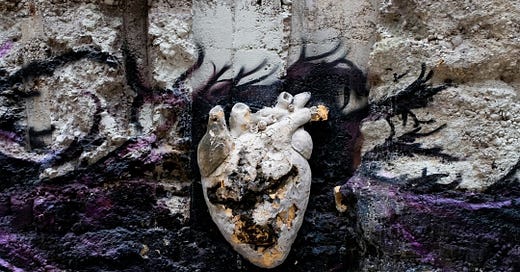I would like to continue commenting on aphorisms from Beyond Good and Evil (1886). We continue reading the first chapter of this book: “Prejudices of Philosophers.”
As a reminder, you can find the previous posts on the following page: Articles on Nietzsche.
To study physiology with a clear conscience, one must insist on the fact that the sense-organs are not phenomena in the sense of the idealistic philosophy; as such they certainly could not be causes! Sensualism, therefore, at least as regulative hypothesis, if not as heuristic principle. —What? And others say even that the external world is the work of our organs? But then our body, as a part of this external world, would be the work of our organs! But then our organs themselves would be the work of our organs! It seems to me that this is a complete REDUCTIO AD ABSURDUM, if the conception CAUSA SUI is something fundamentally absurd. Consequently, the external world is NOT the work of our organs — ? (Nietzsche, Beyond Good and Evil, trans. Helen Zimmern, The Project Gutenberg, 2003)
In this passage, Nietzsche’s critique focuses on the incoherence of applying idealistic philosophy to physiology. Physiology as a science depends on the premise that sense organs actively shape our experience through their physical structure and function. To treat them as idealistic views would render physiological inquiry more or less meaningless, since it would, for example, break the causal link between physiological mechanisms and, say, perception.
Thus, Nietzsche defends sensualism, not as a definitive truth, but as a pragmatic perspective. By treating sense organs as material entities that process and organize sensations, scientists can study perception without metaphysical difficulties, even if this approach leaves open many philosophical questions.
Nietzsche also questions the idea that the external world is the work of our organs through a logical paradox. If our organs construct reality, then the body — as part of that reality — must also be their creation. This leads to the absurdity of organs creating themselves, a notion Nietzsche rejects as the impossible causa sui.
The term, borrowed from Spinoza, emphasizes the mistake of confusing cause and effect: nothing can be its own origin. The external world cannot coherently be reduced to a projection of our senses, for this would break down the distinction between the perceiver and the perceived, leaving no stable ground for either.
Nietzsche positions sensualism as a methodological middle way. While he does not fully endorse materialism, he insists that science must proceed as if the sense organs were material causes. This passage reflects his general suspicion of dogmatic systems and his emphasis on practical inquiry over abstract philosophical constructs.
But this entire passage from Nietzsche's Beyond Good and Evil ends with a question mark, leaving these questions open.
To be continued…
Your sponsorship means everything. Consider becoming a paid subscriber. You will get access to all my paywalled articles and support my Substack.





We start with our interactions, as a baby, smelling our mothers and looking for food. Maybe we see light, maybe not, but soon we react to it, and to sound, which we already know. It is the interaction that creates further development, not the senses nor that which activates upon them.
Very much the snake biting its tale to discover, what?